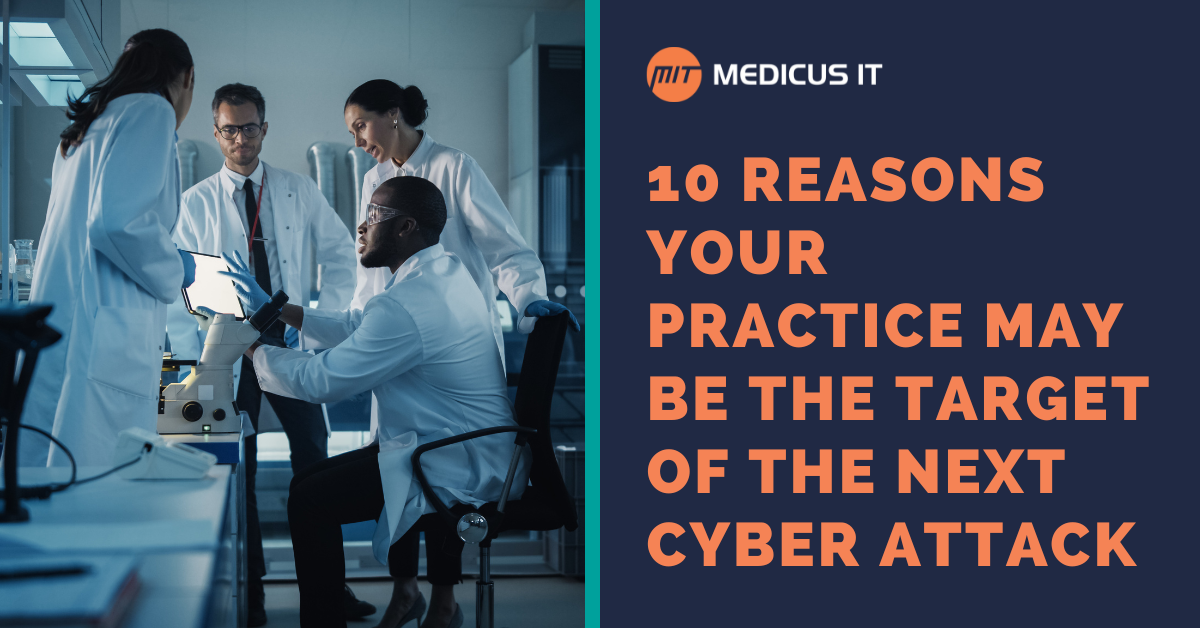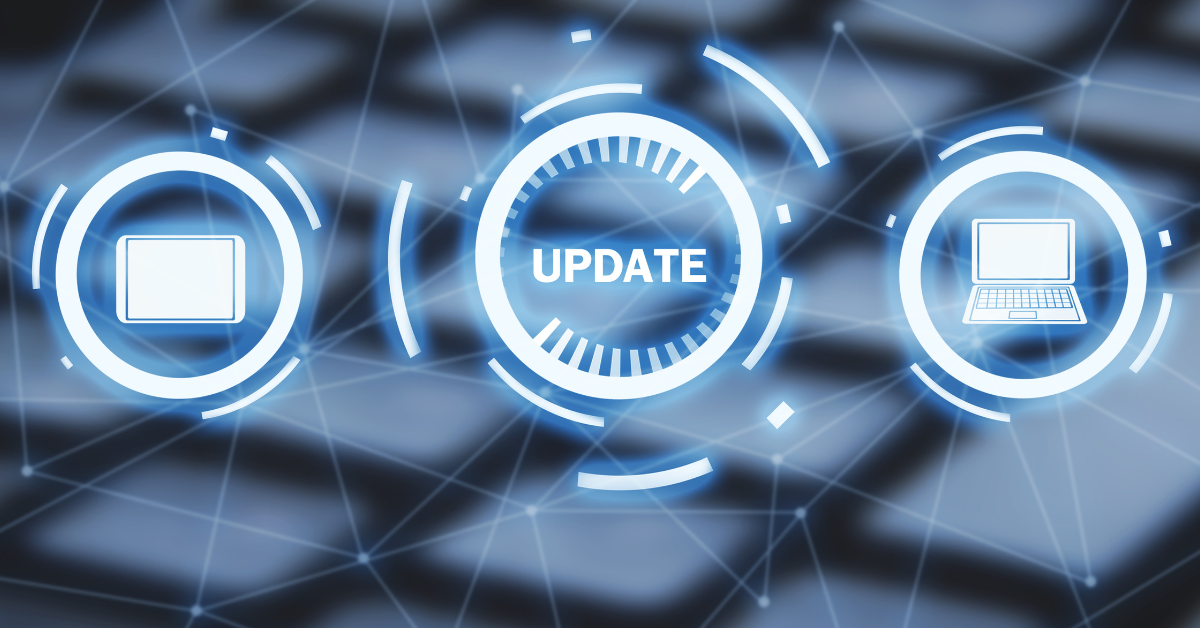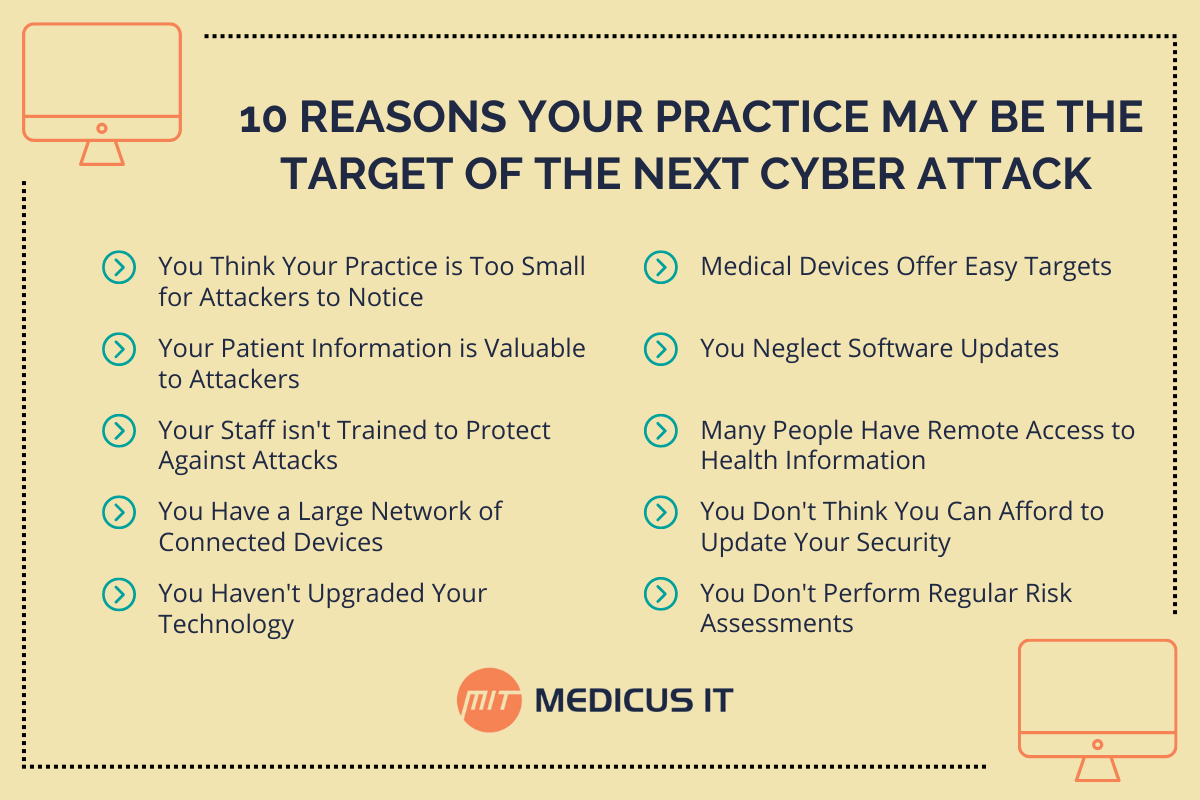Do you have outdated IT systems or a large number of medical devices connected to one network? Do you think performing regular risk assessments is unnecessary? If you answered yes to any of these questions, your practice might be a potential target for cyber attacks.

Below, we list 10 ways your practice can fall victim to cybercrimes.
You Think Your Practice is Too Small for Attackers to Notice
Many small practices believe that they are too small and insignificant to be targeted, assuming only large hospitals are the prime targets for cyber attacks.
Cybersecurity in healthcare applies to all organizations of all sizes, and everyone is at risk. Typically, smaller practices are most vulnerable to attacks since they often have smaller security budgets and simpler, less advanced cybersecurity solutions than larger healthcare organizations.
Your Patient Information is Valuable to Attackers
Healthcare organizations store an incredible amount of private patient information, which is in high demand on the black market.
Patient records will include social security numbers, credit card details, and other forms of personal information. There are multiple uses for these types of personal details. They can be used to create false identities, commit healthcare fraud, illegally purchase prescriptions, get access to medical equipment, apply for loans, create tax fraud, and other types of fraudulent activity.
In other cases, hackers will use ransomware and try to sell hacked patient records back to the hospital, holding patient information hostage until they receive a payout.
Your Staff isn't Trained to Protect Against Attacks
Cybersecurity for healthcare can be complex, and most medical professionals do not have the necessary skills and experience to identify and mitigate cyber issues. Whether due to budget or time constraints, it is simply impossible for each healthcare staff member to be fluent in cybersecurity and the best safety protocols for protecting patient information and IT systems.
You Have a Large Network of Connected Devices
Large healthcare organizations have thousands of medical devices connected to their network. Each device connected to the network acts as a potential target for attackers.
Staff members are often undertrained in IT or too busy to be educated on healthcare and cybersecurity protocols, so they may be unaware of potential threats to devices. If just one device gets compromised, the entire network can become vulnerable to hacks and data breaches.

You Haven't Upgraded Your Technology
Many organizations fail to update their systems due to limited budgets, hesitancy to learn new technology or the fear that upgrades will disrupt their workflow and services.
However, not keeping pace with the advancement of technology and adopting healthcare cybersecurity solutions makes you a bigger target. Operating system vendors regularly patch their systems to fortify their security settings as new threats are discovered. If you do not make it a habit to patch your programs and update your systems, you are losing protection against potential risks.
Medical Devices Offer Easy Targets
Medical devices like X-rays, defibrillators, ECG monitors, and remote monitoring equipment can serve as easy entry points for cybercriminals. Unlike computers, medical devices don’t have the same level of security to avoid attacks. More often than not, organizations that have too many devices are unable to maintain or have appropriate security.
Medical devices can be used to steal patient data or launch an attack on connected servers. Hackers can even shut down or take over the medical device, preventing your practice from providing life-saving patient care.
You Neglect Software Updates
Software companies typically provide updates to fix bugs, add new features and upgrade security.
Failing to upgrade to the latest version of your software prevents you from gaining the protection you need from current and new security vulnerabilities. Keep in mind that the online threat environment is rapidly changing, with attackers becoming more sophisticated with their methods of attack. You must constantly upgrade your defenses to stay protected.

Many People Have Remote Access to Health Information
Staff members who access health information are not always stationed at their desks. Sometimes, they work remotely using different devices.
Unfortunately, those who access information remotely are creating a new vulnerability in which hackers can take advantage. Not all devices are secure, and staff members are often under-trained in basic online protection. Just one hacked device leaves a whole system wide open for an attack.
You Don't Think You Can Afford to Update Your Security
Healthcare and cybersecurity are both key factors in shaping your organization’s policies and systems. Make it a priority to ensure you are always equipped to protect your organization so you can continue providing patient care.
The ransom amount hackers demand after your patient information gets stolen will definitely be more expensive than purchasing or updating online security. By researching software and applications or working with the best healthcare cybersecurity companies, you will discover a number of affordable, yet sophisticated tools designed to detect insider threats.
Having features like privileged access, suspicious file or activity detection, inactive user account management, and password management can help provide a good level of protection. Remember, it’s not about collecting more technology and bloating your IT infrastructure with security tools — it’s about finding the best one that fits your existing system.
You Don't Perform Regular Risk Assessments
Healthcare organizations need to regularly perform risk assessments to determine the strength of their cybersecurity systems. Risk assessments can help identify the vulnerabilities in your system, the weak points in your security operations, and shortcomings in staff training and education.
Methods for cyber-attacks are constantly changing, and the tools necessary to detect and defend against them are being updated at the same pace. It is crucial that you regularly conduct risk assessments to ensure that new healthcare cybersecurity threats are identified and mitigated before they cause costly and irreparable harm.

Contact Medicus IT to help prevent a cyberattack
The right healthcare managed services provider can strengthen your health IT operations and security by helping you create a scalable strategic plan that will help your practice successfully and safely navigate the future.
Medicus IT understands healthcare IT and the high-stakes security, safety, and compliance issues that come with it. We believe in preventive care for IT, and that starts with a strategic focus on the systems and solutions designed to keep your practice out of trouble and your patients out of harm’s way.
Contact us today to learn more about our healthcare cybersecurity services and ensure you are protected. Together, we drive healthcare forward™